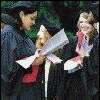WHAT DOES AMALGAMATION MEAN TO THE ENVIRONMENT, ECONOMY, PLANNING AND POLITICS OF OUR CITIES? ASK YORK UNIVERSITY EXPERTS (EXPANDED LIST)
TORONTO, December 4, 1996 -- York University offers up the following expanded list of experts to comment on almost every aspect of the proposed changes to the municipal structure of the six Metro municipalities.
Jon Caulfield, professor of social science, teaches urban studies, and can speak about the politics behind the megacity question and the challenges of amalgamating six municipalities into one megacity. He is also knowledgeable about the history of Metro since 1953. (416) 736-2100 ext. 30125.
Edmund (Terry) Fowler, professor of political science, Glendon College, an expert on municipal politics, local government structures, and intergovernmental politics, economics, and bureaucracies. Fowler can talk about many aspects of the proposed amalgamation, including the logistics of revamping the current system. Fowler also teaches environmental politics, and is interested in environmentally sensitive ways to structure a new city government. (416) 487-6735 ext. 88823 or at home at (416) 651-9772.
Irene Henriques, professor of economics, Schulich School of Business, can speak about the economics of amalgamating the municipalities, and has questions about whether there will be any real cost savings with amalgamation. (416) 736-2100 ext. 77938.
Peter Homenuck, professor of environmental studies, former coordinator of York's urban studies program, and an expert on public consultation techniques that emphasize including people in decision making. Homenuck can speak about a wide range of issues related to the amalgamation issue, including the quality of service delivery, and a city's ideal size. Homenuck argues that Metro should be broken into smaller pieces for some local services, but with a coordinated approach to services such as police and firefighting. (416)
736- 5252 ext. 33033 or (905) 660-1060.
Engin Isin, professor of social science, author of Cities Without Citizens: Modernity of the City as a Corporation (1992). Isin's book, which examines how modern local governments in Canada evolved into corporations, is one of the few texts available on local government history in Canada. Isin can speak on many aspects of the amalgamation question, including historical and legal aspects of the evolution of modern-day Canadian cities. (416) 736-2100 ext. 20346 or at home at (416) 924-4142. email: isin@yorku.ca.
Roger Keil, professor of environmental studies, an expert in urban politics. Keil is very knowledgeable about world cities, and has conducted in-depth studies and comparisons of Toronto, Los Angeles, Frankfurt and Berlin. Keil argues that several comparisons can be made between Toronto and L.A., which has a strong county government like Metro and is experiencing a move towards privatization of some services. He is a political scientist by training, and can speak about issues of governance and political strategies. Keil is co-editor of the book, Local Places in the Age of the Global City (Black Rose Books, 1996), based on a seminar series at York University featuring talks by academics and community members. He is also able to do interviews in German. (416) 736-2100 ext. 22604.
Bryan Massam, professor of geography, and an expert on decision-making around the issue of where to construct public facilities such as highways, airports, and landfill sites. He could discuss where public facilities should be located in a new megacity structure. (416) 736-5107.
Alex Murray, professor of environmental and urban studies, can speak about how the region should be subdivided to deal with different administrative issues. He can also provide a historical perspective on past decisions and the original amalgamation of six municipalities into Metro Toronto in the 1950s, as well as a failed proposal of the 1960s that favored the establishment of a Toronto-centered region in a proposal not unlike those in the Golden Task Force Report. (416) 736-2100 ext. 22629 or at home at (416) 924-1588.
Rein Peterson, professor in York University's Schulich School of Business, director of the Entrepreneurial Studies program. He can comment on how amalgamation can affect the local business community. Peterson believes that bigger is not necessarily better, and that the Metro level of government should be eliminated. (416) 736-2100 ext. 70434 or at home at (416) 233-5335.
Jim Savary, professor of economics, Glendon College, can speak about how the quality of services such as public transportation and police services would be affected by amalgamation. (416) 736-2100 ext. 88150 or at home at (416) 480-0601.
-30-
For more information, call:
Mary Ann Horgan
Media Relations
York University
(416) 736-2100 ext. 22086
Sine MacKinnon
Senior Advisor for Media Relations
York University
(416) 736-2100 ext. 22087
YU/067/96
|

![[to York's Home Page]](../../images/yorklogos.gif)
